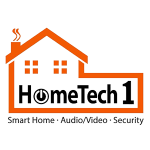Introduction
You might not think of your home’s locks as a weak point in terms of security. A deadbolt is a deadbolt, after all. Not exactly, though.
Traditional locks and keys are antiquated and vulnerable, even though they could make us feel safer. For this reason, a lot of homeowners who are worried about their physical security have chosen to equip their entryways with smart locks.
A Smart Lock: What Is It?
A smart lock is a device that upgrades your regular door lock, making your home more secure and convenient. It allows keyless entry and can be controlled through your phone, fingerprint, or other methods. Smart locks help keep intruders out while also making it easier for you to enter your home, like when your hands are full with groceries. They’re also not that unusual. Likely, you have already utilized a smart lock in your daily routine. Most rental homes, office buildings, and hotel rooms employ smart locks of one kind or another. With the availability of technology at home.
How Many Types of Smart Locks Are There?
Every family has different wants, and there’s a lock on the market that can be customized to meet them all. Let’s examine a few of the most widely used varieties of smart locks.
Bluetooth: These smart lock kinds are likely the most adaptable ones available. When they detect a certain piece of equipment, like a smartphone, nearby, they may activate. It is possible to register multiple devices and specify distinct parameters for who has access to the door and when.
RFID: RFID locks, like Bluetooth smart locks, detect cards or fobs that are permitted to pass through a door using radio frequencies. You’re undoubtedly familiar with this technology if you’ve ever worked in an office building.
Biometric: Biometric smart locks work by taking a picture of a person’s body and analyzing its features to decide whether or not to provide access. Although fingerprints are the most widely used biometric parameter, more sophisticated locks can also incorporate iris or retinal recognition.
Z- Wave: The key difference between Z-Wave and Wi-Fi is that Z-Wave doesn’t link directly to your phone. Instead, it connects through a smart home hub, which translates the signal for your router. Once set up, you can control and monitor your smart locks remotely from anywhere. Z-Wave locks also offer extra protection against hacking.
WiFi: Most frequently, these smart locks are offered as components of security system kits that include a smart hub that is connected to your house. Large families will love them because they can easily track who is entering and departing and are typically operated by the user’s smartphone.
Keypad: Digital keypad locks operate by requiring the entry of a predetermined code to unlock the door. These can be found in rental homes, like Airbnbs, where a code can be created for each visitor and altered after they leave.
Conclusion
People have different opinions about home security. Some people feel safe with unlocked doors, while others want high-tech security systems. Most people prefer a middle ground. Take a close look at your home—consider the crime rates, how your property is laid out, possible entry points, and how safe you feel with your current setup. If someone tried to break in, would they feel confident or think twice? Do you have anything in place to stop them? Smart locks are a worthwhile investment for those wanting extra security and convenience. They not only impress when you can unlock the door with Alexa, but they also provide a strong layer of practical protection.


